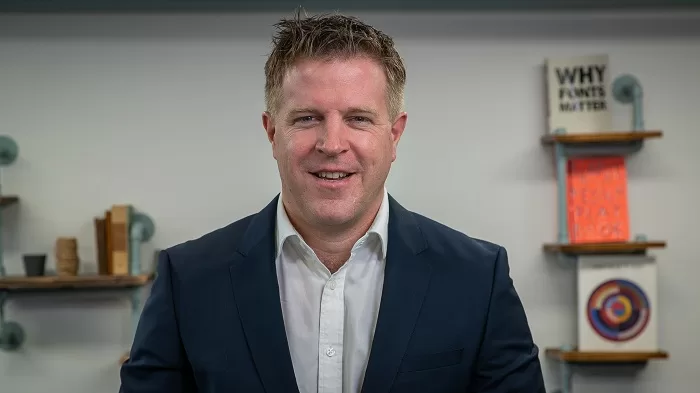Tough economic headwinds provide exciting opportunities for agile, customer-centric fintechs
By Andy Jury
At this time of the year there is usually a flurry of articles attempting to lay out trends to look out for in various industries over the coming months. This is a good exercise as it gets one thinking about industries broadly and technology specifically. However, it would be remiss to embark on this exercise without first taking stock of where we are now. The fintech ecosystem is currently in a period of stress, less so for incumbents but noticeably for newcomers.
This stress is a direct result of macroeconomic pressures piling up to generate headwinds for new market entrants. As we all know, when the macro picture is less than rosy it affects play out on the ground. In summary, there is less money floating around – less money from investors and most notably, less disposable income in the hands of consumers.
Let’s take a moment to appreciate how this looks in the broader African context. Firstly, it means there is significantly less money knocking on the doors of new and innovative businesses that need investors.

Just recently, a payments processor headquartered in France lost 53% of its value – this kind of scenario has a knock-on effect across borders. However, there is a massive opportunity for fintechs that have bootstrapped themselves up in the uniquely African context.
Read also : Egypt’s Paymob Becomes First International Fintech Company to Obtain Full Payment License in Oman
What does this opportunity look like? For starters, there continues to be a great deal of disruption in the market. Fintechs, mobile network operators (MNOs) and banks will approach the challenges and opportunities differently. The ones that emerge from this phase in a strong position will be those that have thought about the economics of their proposition carefully, because the opportunity that presents itself in tough times is likely more scalable from an addressable market perspective.
On the other hand, those who react will focus on price. A war on price is a race to the bottom. On the contrary, the businesses and fintechs that get through the tough times will be those that focus on customer experience (CX). It may be considered an intangible that sits between the bricks and cogs of a business, but it is crucial.
In difficult conditions, every business focuses on customers returning and using their products and services more frequently. This isn’t easy, or everyone would be getting it right. Customers with less money in their pockets become more discerning, and in our experience are looking for a full basket of genuinely personalised customer experience where affordability is a crucial component, but most certainly not the only one.
We have learnt that speed, access, trust, convenience and safety in the payments space continue to be exceptionally important drivers in customers’ decision making on where to spend their hard-earned money. At Mukuru we build very tight feedback loops with our customers and the feedback we get time and time again is speed, ease of use and safety is primary to how they develop their consideration set.
Looking ahead, regulation will continue to play an important role in how the industry evolves. The FATF’s greylisting earlier this year has had a significant impact on businesses such as ours. We are under increasing scrutiny, not because anyone thinks we present any more risk than before, but because accountable institutions must demonstrate that they are confident money isn’t being laundered or used for nefarious purposes. The result is that fintechs need to spend more time thinking and planning their products and must be tight in terms of the relationships they build with their customers.
Read also : Fintech Startups in Tunisia Now Need Approval from Central Bank of Tunisia to Partner with Local Banks
Regulation is also expected to present immense opportunities, especially in Southern Africa. South Africa, for example, lags other regions in the realm of mobile money. Legislation which is expected to come into play in 2025 will effectively form the framework within which e-money capabilities will be governed. This moment will be a significant game changer for the region. The ability for more people to use e-wallets more frictionlessly will add immense value in the South African context and will fundamentally change the landscape of how money is stored, used and moved.
Looking toward this big disruption on our doorstep, businesses will approach the opportunity differently. There will be those who throw mud at the wall and see what sticks, whereas we believe the real winners will be those that remain crisp and precise with their customer propositions. In this context, we believe partnerships will be vital for stability and growth, where partners enter mutually beneficial symbiotic relationships. These can take many shapes and forms, such as payment providers bridging the gap between the informal and formal sectors solving a problem for fintechs who need ways to enable their customers to pay for goods and services, and where the payment provider gets access to millions of previously unreachable customers.
Digitisation and diversification will continue to be important trends in the coming months and years. Take a moment to consider the power that MNOs and banks have traditionally exerted in the formal payments ecosystem – fintechs who are agile can enter into partnerships with other fintechs to offer similar one-stop solutions to those currently offered by the MNOs and banks. This trend will see an equalisation of influence.
Lastly, those that prioritise customer needs and wants will emerge stronger. There are two schools of thought on how you digitise money. The first is that you place a wallet in someone’s hands and encourage them to use it. This would be the traditional approach. The Mukuru approach, and certainly the approach of the more agile players, is to find a way to help people with their payment and remittance needs and then graduate them towards using a digital store of value as they develop trust in the brand and the technology.
Read also : Egypt’s Paymob Becomes First International Fintech Company to Obtain Full Payment License in Oman
These are divergent approaches, but in difficult economic conditions our experience – which has seen us sign up 14-million customers across many countries – says it is better to listen to what customers want and then walk a journey with them as they become more sophisticated in their digital journeys. Our approach is to solve a problem and then gradually build trust and extend the services and products we offer, as opposed to building a shiny product and waiting for customers to arrive.
Andy Jury, CEO at Mukuru (www.Mukuru.com)
Kelechi Deca

Kelechi Deca has over two decades of media experience, he has traveled to over 77 countries reporting on multilateral development institutions, international business, trade, travels, culture, and diplomacy. He is also a petrol head with in-depth knowledge of automobiles and the auto industry















